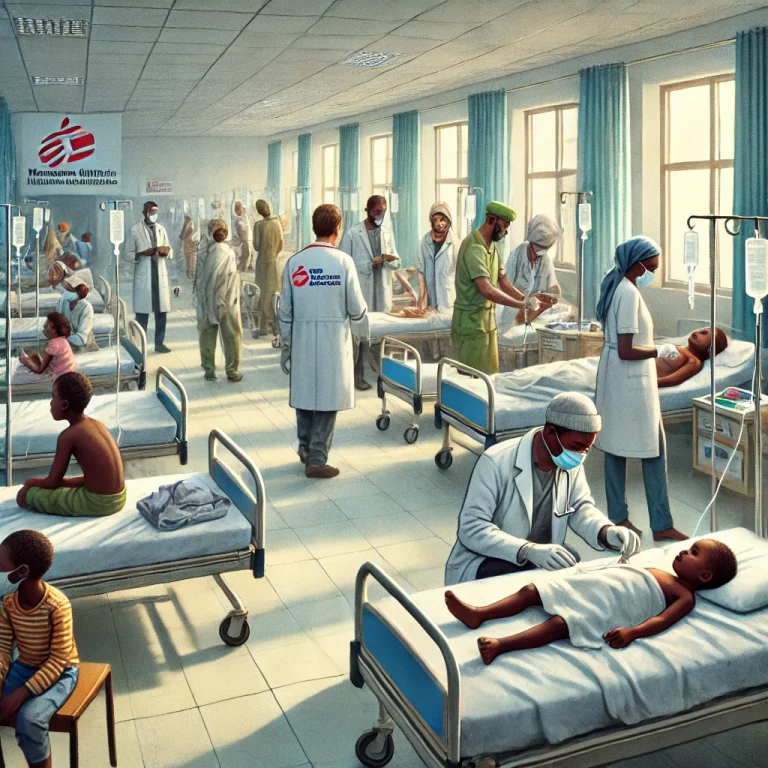Since early March, a deadly meningitis outbreak has been spreading rapidly across Northwest Nigeria, particularly in Kebbi and Sokoto States. The disease, known for its highly infectious and fatal nature, is claiming lives at an alarming rate.
Without immediate action—especially mass vaccination campaigns and other preventive measures—the situation will only worsen, warns Médecins Sans Frontières (MSF) / Doctors Without Borders. Healthcare workers are in a race against time.
In response, MSF medical teams have been working tirelessly to meet the growing needs. They are treating hundreds of patients, supporting local health facilities, and ensuring timely access to life-saving care. MSF is also supplying hospitals with essential medications and training medical staff to handle the crisis.
“The situation is dire. Meningitis can kill within hours if patients don’t receive timely care,” says Dr. Bukar Galtimari, an MSF medical doctor based in Kebbi State, the worst-hit region. “We see mothers rushing in with two or three children, all infected. The speed at which the disease spreads makes every case a potential tragedy.”
In Kebbi alone, MSF teams have already admitted over 500 meningitis patients across three Local Government Areas—Gwandu, Jega, and Aliero. Tragically, more than 60 have lost their lives.
Meningitis, particularly the Neisseria meningitidis strain circulating in Nigeria, is lethal if left untreated. Without early medical intervention, the mortality rate can reach 80 percent. While prompt treatment is essential, vaccination remains the best defense against new infections and widespread outbreaks.
In neighboring Sokoto State, MSF teams are reinforcing the local health system, improving case detection, and increasing epidemiological surveillance in vulnerable communities. Plans are underway to launch a mass vaccination campaign in collaboration with state health authorities, possibly as early as April.
“Our patients arrive with severe headaches, high fever, stiff necks, nausea, vomiting, seizures, and light sensitivity,” explains Dr. Galtimari. “This is a preventable disease, yet people are dying. Federal and local authorities must act now to accelerate vaccine distribution and ensure adequate doses for all affected areas.”
As suspected and confirmed cases emerge across more northern states, MSF is dispatching additional emergency teams to assess and respond to the crisis. The organization stands ready to scale up its support to Nigeria’s overwhelmed healthcare system.
Meningitis is a recurring public health threat in Africa’s “Meningitis Belt,” which stretches from Senegal to Ethiopia. Dry, hot, and dusty conditions create an environment conducive to outbreaks, with bacteria spreading through respiratory droplets. Without swift intervention, the disease can cause irreversible damage or death within 24 hours.
Early diagnosis can be difficult, especially in children. A large-scale, well-coordinated vaccination campaign is the most effective strategy to curb this outbreak and prevent further loss of life.
MSF has been providing free medical care in Nigeria since 1996 and currently operates in nine states. As an independent, neutral, and impartial organization, MSF relies on private donations to deliver emergency healthcare to those in need.


